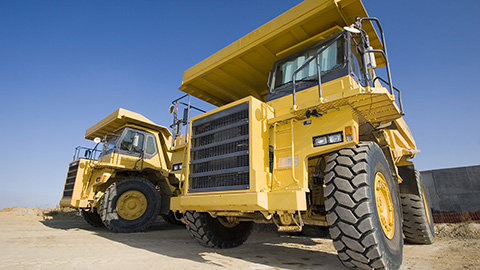The Advantages of Using Composites in Construction Materials
Wiki Article
Discovering the Uses and Advantages of Recycled Composites in Modern Industries
The combinations of recycled materials with innovative composite modern technologies presents a promising avenue for boosting sustainability, strength, and cost-efficiency throughout different markets. As industries seek cutting-edge services to address ecological worries and enhance functional efficiencies, the consolidation of recycled composites arises as an engaging choice.Ecological Benefits of Recycled Compounds
The usage of recycled compounds in contemporary industries offers considerable environmental benefits, adding to the reduction of waste and the conservation of all-natural sources. By including recycled compounds right into making procedures, markets can reduce their reliance on virgin products, consequently lowering the quantity of waste produced and the power required for removal and manufacturing. This shift in the direction of utilizing recycled composites helps in drawing away materials from garbage dumps, minimizing the concern on waste administration systems, and decreasing greenhouse gas exhausts connected with conventional manufacturing practices.Furthermore, the use of recycled compounds advertises the conservation of all-natural resources such as hardwood, minerals, and water, which are often depleted with the extraction and handling of basic materials (composites). By extending the lifespan of products with recycling, markets can aid preserve communities and biodiversity by lowering the demand for brand-new sources. On the whole, the fostering of recycled composites in contemporary markets plays an essential role in promoting sustainability and mitigating the environmental influence of production procedures
Boosted Durability in Item Production
With a focus on durability and toughness, integrating recycled compounds into product production procedures improves durability and sustainability. By utilizing recycled composites, suppliers can create products that are not just strong yet likewise resistant to tear and wear, making them perfect for long-lasting use in numerous sectors. The combination of different materials in recycled compounds can often cause boosted toughness and durability contrasted to standard materials, providing a cost-effective remedy for creating lasting goods.One of the crucial advantages of making use of recycled compounds in product production is the capacity to tailor the material homes to meet details durability needs. By readjusting the make-up and manufacturing techniques, makers can tailor the recycled compounds to endure rough ecological conditions, heavy loads, or regular usage without endangering on efficiency. This versatility in style and manufacturing enables for the production of extremely sturdy products that preserve their stability over time, minimizing the need for frequent substitutes and eventually adding to a more lasting production process.
Cost-Effectiveness and Financial Benefits
Including recycled composites into product manufacturing not just enhances sturdiness and sustainability however also provides substantial cost-effectiveness and financial benefits. Making use of recycled compounds can lead to reduced material expenses as recycled materials are usually cheaper than virgin materials. Additionally, recycling composite materials can lower garbage disposal expenses and decrease the requirement for garbage dump space, adding to total expense savings for markets.

Advancement and Style Versatility With Recycled Composites
Making use of recycled composites in modern-day sectors supplies unrivaled opportunities for technology and style adaptability. By incorporating recycled products into composite production processes, firms can press the boundaries of traditional layout restraints and check out new opportunities. The adaptability of recycled composites enables for the development of complicated shapes and structures that could not be achievable with conventional products.One of the key advantages of recycled composites is their ability to be molded into numerous forms, providing developers the freedom to trying out distinct sizes and shapes. composites. This flexibility opens up a world of imaginative opportunities, enabling the growth of light-weight yet resilient products that fulfill the certain needs of various industries
Additionally, the use of recycled composites advertises sustainable techniques and sustains the circular economic situation by lowering waste and lessening the ecological effect of making procedures. This concentrate on environment-friendly style solutions lines up with the expanding pattern towards sustainability in contemporary sectors, making recycled compounds a valuable resource for forward-thinking and ingenious companies.
Applications Across Numerous Industries
Recycled compounds discover impactful and diverse applications throughout a wide variety of sectors as a result of their one-of-a-kind homes and sustainability advantages. In the auto sector, these products are increasingly utilized for producing lightweight and sturdy components, boosting gas efficiency and minimizing carbon emissions. The aerospace industry take advantage of recycled compounds in the manufacturing of aircraft parts, where the materials' strength-to-weight proportion is vital for making certain safety and performance. In building and construction, these composites are utilized for creating strong yet environment-friendly structure materials, adding to sustainable framework development. The sustainable energy field employs recycled compounds in wind generator blades and photovoltaic panels, utilizing their toughness and resistance to harsh environmental conditions. Furthermore, the marine market utilizes these materials for making boat hulls and components, supplying boosted toughness and deterioration resistance. The versatility and sustainability of recycled compounds make them valuable throughout various sectors, driving technology and ecological stewardship. composites. visit the site
Conclusion
To conclude, the that site utilization of recycled composites in modern markets offers substantial environmental benefits, enhanced sturdiness in item manufacturing, cost-effectiveness, and economic benefits. Furthermore, the usage of recycled composites enables technology and style versatility across different markets. On the whole, the adoption of recycled composites offers a lasting and functional option for satisfying the needs of the industry while also lowering environmental influence.
One of the crucial benefits of utilizing recycled compounds in product production is the capability to customize the product residential or commercial properties to fulfill specific toughness requirements. Utilizing recycled compounds can lead to minimized material expenses as recycled products are frequently less pricey than virgin products. The aerospace market advantages from recycled composites in the production of aircraft parts, where the products' strength-to-weight ratio is essential for guaranteeing safety and security and efficiency.
Report this wiki page